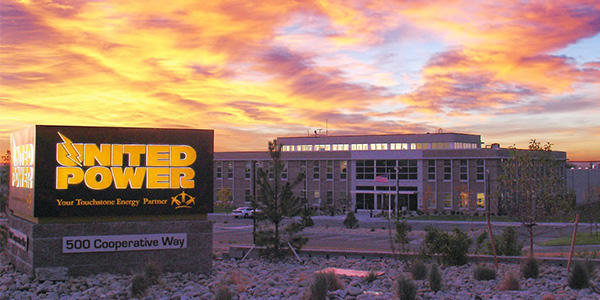A Colorado administrative law judge on Friday recommended to the state’s Public Utilities Commission that it accept United Power’s exit-fee methodology in its long-running dispute with Tri-State Generation and Transmission Association, saying United and fellow complainant La Plata Electric Association (LPEA) were treated in a “discriminatory manner” (19F-0620E, 19F-0621E.)
Under the recommended methodology, United would pay Tri-State $234.8 million, a figure United said was “comparable” to payments made by other members leaving the cooperative. Tri-State had proposed a charge of $1.25 billion, an amount that would have resulted in an “unfair windfall” to the association’s remaining members, United said.
LPEA would pay almost $97 million to leave Tri-State under the ALJ’s recommendation. The cooperative has not been offered an exit fee by Tri-State.
FERC in June accepted Tri-State’s proposed contract-termination payment (CTP) methodology for filing but also set hearing and settlement judge procedures. The commission said it could not resolve issues of material fact based on the existing record and that the CTP methodology had not been shown to be just and reasonable (ER20-1559). (See FERC Sets Tri-State’s Exit-fee Rules for Hearing.)
United in May filed a lawsuit in a Colorado county district court against what it called a “civil conspiracy” to deprive state regulators of jurisdiction over Tri-State’s exit fees. That proceeding is pending, but a Colorado ALJ in the meantime rejected Tri-State’s defense that the PUC lacks jurisdiction.
The parties have 20 days to file exceptions to last week’s decision, after which the PUC will then consider the complaint.
United has been trying for more than two years to arrange an exit from Tri-State before its wholesale service contract expires in 2050.
“We recognize this is just the next step in a long process,” said Bryant Robbins, acting United CEO, in a statement. “It’s our goal to provide reliable power to every family and business we serve, and to provide that power at a cost that makes sense. We carefully considered our obligations to Tri-State and developed what we believed was a fair exit cost.”
In a competing statement, Tri-State CEO Duane Highley said efforts “to protect the interests of all our cooperative members and their electricity consumers” will continue before the PUC and FERC, and he issued a warning to the cooperative’s members.
“If this decision is allowed to stand, more than $1 billion in costs will be unjustly added to our members’ electricity bills in Colorado, Nebraska, New Mexico and Wyoming,” Highley said. “In an effort to save money for themselves, United Power and LPEA are a step closer to forcing costs they agreed to pay onto smaller, less wealthy utilities and their rural consumers.”
Tri-State said the recommendation would result in a contract termination figure “that is far below any fair value” of the two utilities’ contracts and “well below” their share of the association’s debts and other obligations. It said United’s share of its outstanding debt and other obligations is approximately $762 million.
The association also noted that United and La Plata both “freely signed” long-term power contracts with it in 2007 and agreed to share the supply costs with other utility members. It also said the CTP methodology was developed by its utility members and that they all can participate in the FERC settlement and hearing process.
The two utilities are among Tri-State’s three largest members. United is the largest, with about 15% of electric demand thanks to its 93,000 members in Denver’s northern suburbs. La Plata is the third largest among Tri-State’s 42 distribution utility members, with more than 34,000 members in southern Colorado.






